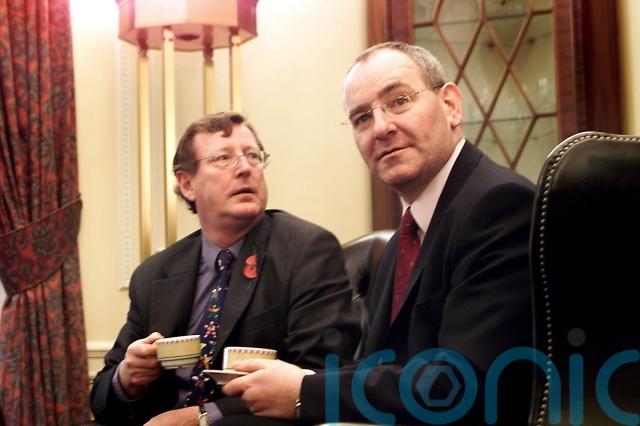
The UK Government made plans in 2002 to extend emergency legislation to Northern Ireland to allow women to have continued access to emergency contraception following a legal challenge to the sale of the morning after pill.
Then Stormont Health Minister Bairbre De Brun lobbied for the move by Westminster, but said it would potentially “result in public debate with a great deal of emotive language coming from those on both sides”.
Ms De Brun had signed an order in 2000 introducing the sale of the morning after pill over the counter at pharmacies without prescription in Northern Ireland for women over the age of 16, following a similar move at Westminster.
However, a High Court bid was launched in England to halt its sale with campaigners claiming the morning after pill was a form of abortion, and should be subject to legislation governing abortion.
A draft letter from Ms De Brun to then Northern Ireland Secretary John Reid on March 6 2002 is contained in newly released files at the Public Record Office in Belfast.

In the letter, Ms De Brun says: “I understand that you have already been advised in some detail about the potential need to extend here the provisions of an Emergency Bill that may have to be introduced at Westminster in the very near future in the event that the Department of Health (DoH) loses a judicial review brought by the Society for the Protection of Unborn Child (SPUC).
“The review was heard in London on 12, 13 and 14th February and I understand that the judgement is expected around Easter.
“Following the hearing, DoH remains confident of winning the case but the implications are so serious that it has devoted considerable time and energy to preparing a robust contingency plan.
“These implications, ie loss of access to emergency contraception, at least, will apply here should the case be lost.
“I am committed to ensuring that women here have the same degree of access to emergency contraception, which they have enjoyed for many years.
“I have, therefore, no option but to seek to ensure that similar contingency arrangements are put in place.”
Ms De Brun added: “The judicial review seeks to quash the Order laid in December 2000, and signed jointly by Yvette Cooper and me, which allowed emergency contraception to be sold over the counter in pharmacies, on certain conditions.
“The case bought by SPUC is that emergency contraception is a method of abortion, and therefore anyone who administers or supplies it is committing a criminal offence under the Offences Against the Person (OAP) Act 1861.”
She added: “As part of its contingency plans DOH is proposing that an amendment would need to be made to the OAP Act to define a ‘miscarriage’ as only taking place post-implantation.
“This is to make clear that it will not be a criminal offence to supply or administer emergency or other contraception, which has the effect of preventing implantation.
“This emergency legislation, if passed, would re-establish the position upheld by previous administrations in England and generally accepted here.
“My purpose in writing is, therefore, to ask you to take the appropriate steps to ensure, if necessary, that the provisions of the Emergency Bill which may be brought forward by DOH extend here.”
She added: “The 1967 Abortion Act does not extend to this part of the world and any suggestion of tampering with the law governing abortion here ie the OAP Act, will result in public debate with a great deal of emotive language coming from those on both sides.
“While the amendment being proposed will not actually change the law on abortion in any practical and meaningful way, you can expect that there will be those who will wish to muddy the waters.
“There is really therefore no alternative to extending the Emergency Bill here, if indeed it becomes necessary for DOH to seek to have it passed at Westminster.”

The following week Mr Reid wrote to Stormont’s First Minister David Trimble and deputy First Minister Mark Durkan on the issue.
He said: “Abortion and contraception are especially sensitive and delicate subjects in Northern Ireland.
“In relation to abortion, my predecessors and I have made it clear that the Government would not impose any change in the law in Northern Ireland, and that any change to the law on abortion could only come about with the broad support from a cross-section of the people in Northern Ireland.
“I do not, however, regard the emergency Bill as being about abortion, so much as contraception.”
He added: “Against all this background, I believe there is no practical alternative for Northern Ireland but to join in the planned Bill by having it extend to Northern Ireland.”
A joint response from Trimble and Durkan to Mr Reid said they would support his proposed action.
On April 18 2002 a High Court judge rejected the SPUC legal challenge.
Subscribe or register today to discover more from DonegalLive.ie
Buy the e-paper of the Donegal Democrat, Donegal People's Press, Donegal Post and Inish Times here for instant access to Donegal's premier news titles.
Keep up with the latest news from Donegal with our daily newsletter featuring the most important stories of the day delivered to your inbox every evening at 5pm.